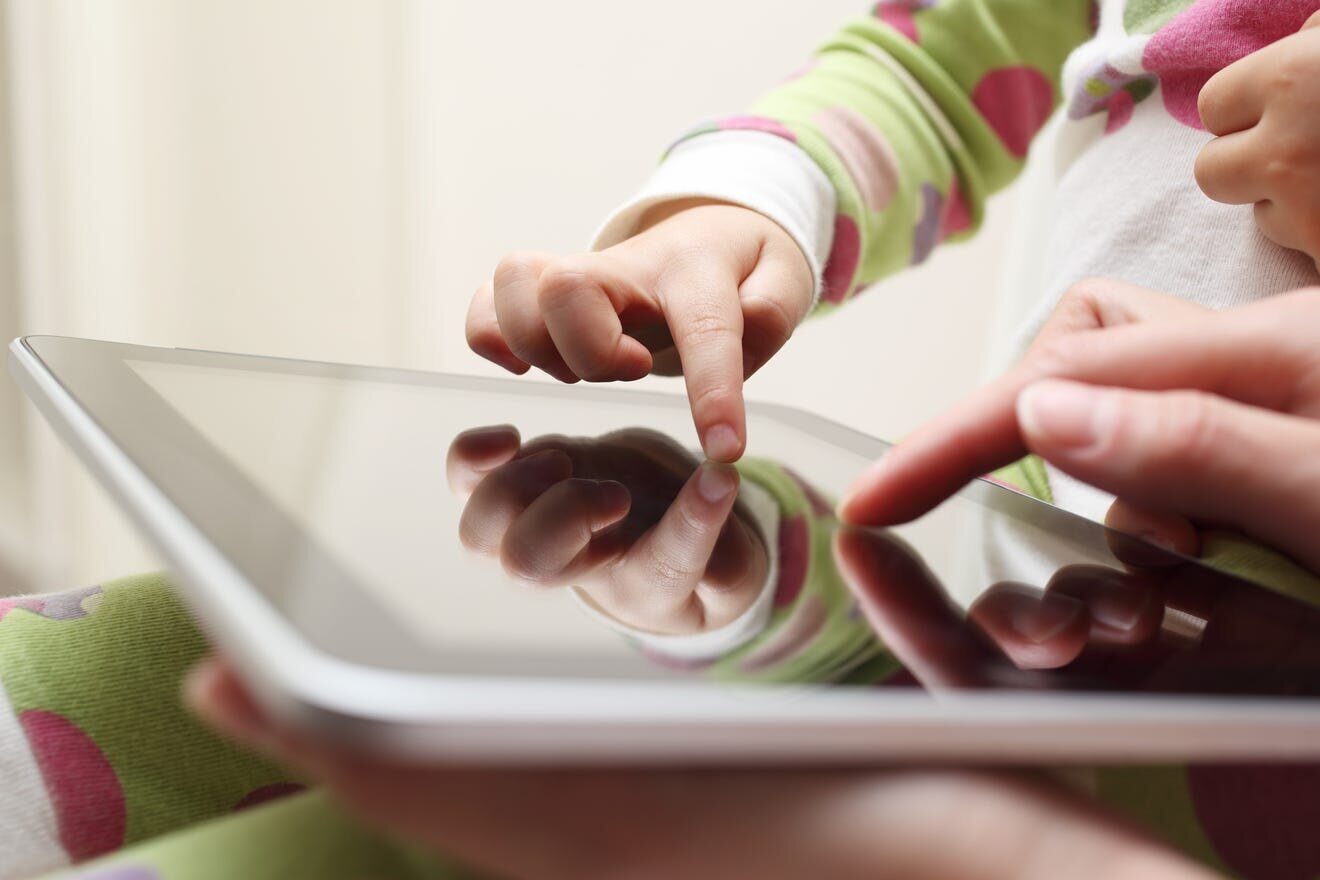I did not allow my children to use technology until they were three and four-years-old. It was not easy to make this decision as a parent, but because I read so much about brain development in young children, I knew that it would be best to wait. There would be plenty of time down the road for them to become tech savvy. My older son was often heard telling people, “technology is not good for your brain,” words he often heard from his mother. You can imagine just how popular that statement was in a room full of parents with young children playing on their iPads.
As it turns out, this mom was right! A recent study published this week in a JAMA Pediatrics journal by lead author Dr. John S. Hutton, found a link between screen use and the development of parts of the brain that support language and literacy development in preschool-aged children.
Dr. Hutton is a pediatrician and clinical researcher in the Division of General and Community Pediatrics and Reading and Literacy Discovery Center at Cincinnati Children’s Hospital. His study of screen time and how it affects the developing brain examined the brain scans and cognitive tests of 47 children ages three to five and parent surveys on screen use.
The Findings:
-
41% of the children had a screen in their bedroom.
-
60% had their own devices.
-
The median screen time was 1.5 hours.
-
The range of screen time was from zero to 12 hours.
-
Children with higher screen exposure had poorer expressive language and processing speed (naming objects).
Overall, the findings tell us there is a link between screen time and brain development. Children ages two to five who get more screen time than one hour, as the American Academy of Pediatrics recommends, have differences in the parts of their brains that support language development and self-regulation. These findings highlight the need for parents and caregivers to set healthy limits on screen time, particularly during the early years when brain development is at its peak.
What Can Parents Do?
-
Wait until children are older before allowing them to watch TV and use other devices.
-
Do not allow screen devices in bedrooms.
-
Limit screen time in a preschooler’s day to 1 hour per day.
-
Choose high quality programming to be viewed with a parent or caregiver.
-
Do not allow exposure to violent content on any devices.
-
Model the behavior you want to see by limiting your own screen time.
-
Read and talk with your child.
-
Tell stories and sing songs.
-
Play together.
-
Go outside with your children and talk about the things you hear and see.
-
Encourage children to play sports.
Ask questions. Answer questions. Interact. Read. Talk. Play. For more ideas on limiting screen time, click here.
« Make an Impact: Join Our $1,000 Club & Give a Child from a Low-Income Family the Opportunity to Attend Our School1K Club on Giving Tuesday »




